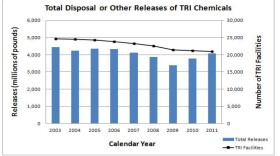Corrected: 12/11/2023
Water use from the Great Lakes basin dropped 3% in 2022 compared to the year before.
That's according to an annual report by the Great Lakes Commission.
Water usage from the Great Lakes may have declined, but it was still a staggering amount — more than 40 billion gallons per day — nearly all of it returned to the basin.
Overall, the basin gained about 863 million gallons of water per day in 2022 due to diversions into Lake Superior from the Hudson Bay watershed.
Candice Miller is one of Michigan's four representatives on the Great Lakes Commission. She's also the Public Works Commissioner for Macomb County.
Miller said the eight states and two provinces that use Great lakes basin water need to remain on the current sustainable path.
"Outside of Phoenix, they've stopped development," she said. "It's not sustainable there, there's not enough water. We are incredibly fortunate to have these Great Lakes here. But it's really on us in a very large way to make sure we're great stewards of the Great Lakes."
Miller noted that the Great Lakes basin is 20% of the accessible drinking water supply on the entire planet.
She said tracking water usage from the basin will become even more crucial in the future, especially if the Great Lakes region sees population growth as climate change increases.
Correction: This story was corrected to read "Hudson Bay," rather than "Huron Bay."






